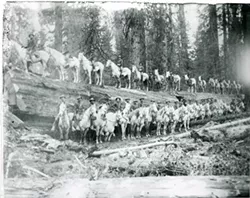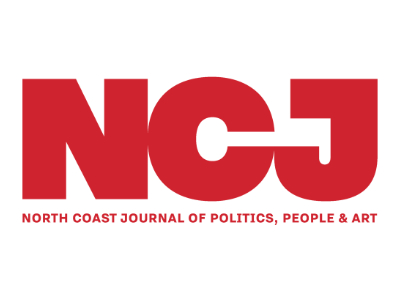
The Indigenous fight against illegal cannabis grows
Editor’s Note: The following is an excerpt from Kaitlin Reed’s book Settler Cannabis: From Gold Rush to Green Rush in Indigenous Northern California that has been edited for publication in the Journal. The July sun was hot on the back of my neck as I struggled to find my footing on a steep mountainside along the Klamath River. Yurok ancestral territory is located here in northwestern California and has been the ground zero for cannabis production since the 1960s. At the height of the contemporary cannabis “green rush,” Yurok ancestral territory was under siege by large-scale trespass cannabis cultivation. Illegal and unregulated water diversions ran our streams dry and degraded water quality with chemical pollution and human waste. My colleagues with the Yurok Tribe Environmental Program were tasked with dismantling the cannabis irrigation structures that were sucking tribal water resources dry and documenting the ecological impact of cannabis cultivation. We were looking for thin black plastic tubing — hard to see and even harder to remove. As sweat poured down my face, the quantity of tubing seemed never-ending. I ripped up as much polyethylene tubing as possible in an attempt to liberate our tributaries. Within a short time, there was a gargantuan pile of black snakes ready to be removed from the landscape. However, the concern that additional black snakes remained continues to linger. The onslaught of settler-colonial destruction is not relegated to history; it is very much a part of our present and lived experiences as Indigenous peoples in this region. Our River, the lifeblood of our people, has been under attack since settler-colonial invasion a little over a century and a half ago. The history of water development and extraction in the Klamath Basin has disproportionately impacted Indigenous peoples, water, plants and wildlife. The Klamath Project of 1905, the first Bureau of Reclamation project, led to the construction of four deadly dams and extensive agricultural pollution of the Klamath River, effectively collapsing the possibility of future sustainable subsistence fishing economies. This has had detrimental impacts on the cultural and food sovereignty of Native peoples within the Klamath Basin, as well as on fish, wildlife and plant species. Within Yurok culture, Salmon are understood as relatives and ancestors. While the word “genocide” is reserved for human beings within a Western paradigm, we conceptualize the fish kill as a genocide. In 2002, our Salmon relatives faced a genocide of cataclysmic…

